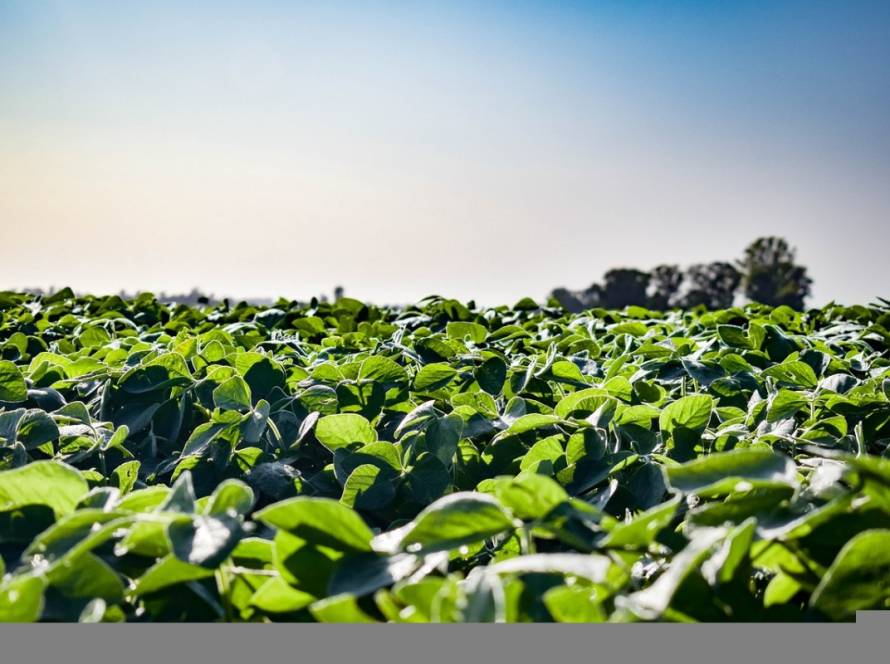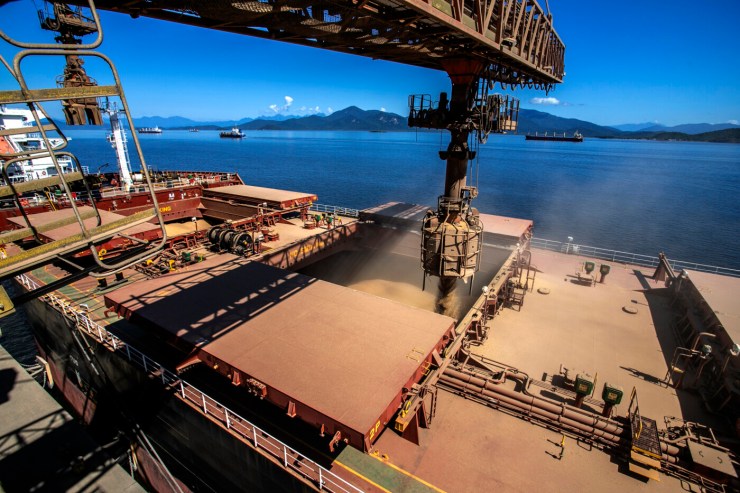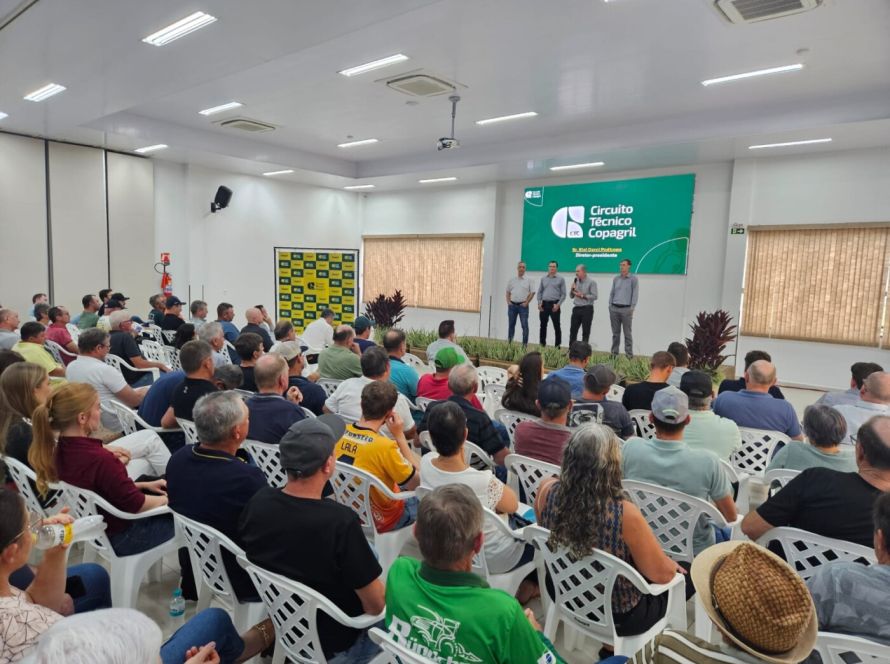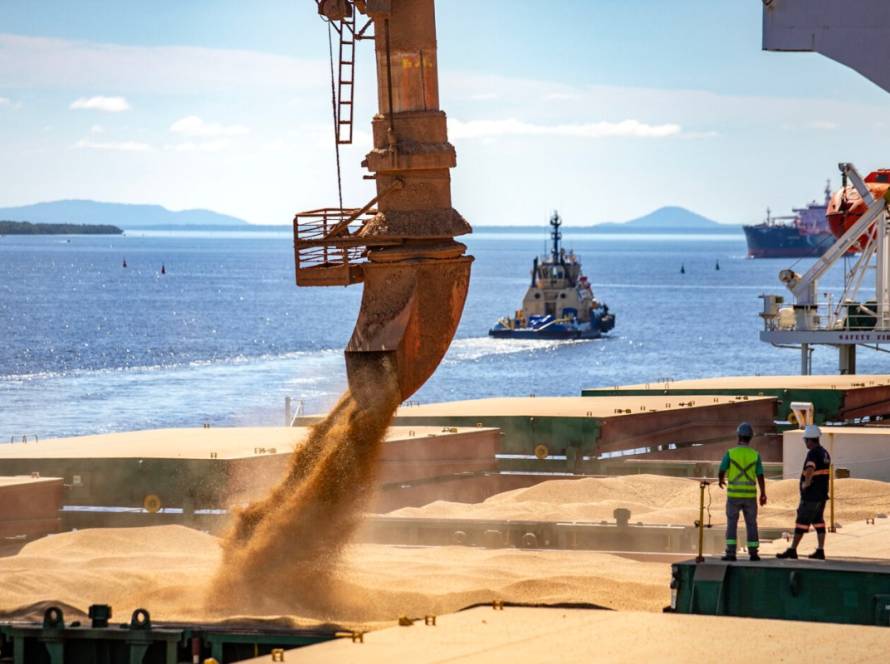August 21st is Seed Day. More than just a date on the calendar for soybean seed multipliers, it's a reminder that this valuable infrastructure houses the technology, research, and innovation that drive all productivity in the field. For the soybean production chain, this is the starting point for a new harvest, assured by investment in genetics and the responsibility to guarantee the health and quality that maximize each crop. After all, soybean seeds are the foundation of a successful agribusiness and the promise of a sustainable future for agriculture.

Photo: Alvaro Rezende
Therefore, it represents the vitality of a sector with a complex ecosystem that exists through the union of cutting-edge biotechnology, rigorous regulations, dynamic market forces, and strategic partnerships between institutions. The Brazilian Association of Soybean Seed Producers (Abrass), immersed in this reality, it actively seeks to strengthen, defend, and value this activity. The segment's trajectory is a story of profound transformation, moving from a centralized, state-controlled model to the highly professionalized and regulated system we know today. This evolution was crucial to Brazil's consolidation as one of the world's largest soybean producers.
Perspectives and challenges
The robustness of the soybean seed market explains why production of this legume is at the heart of the country's economic development. Data from Blink Consultoria shows that in 2022/23, this market generated R$1.5 billion, with a volume of approximately 55.3 million 40-kg bags, reflecting a growth of R$6.2 billion compared to the previous year. However, the sector faces a major challenge: R$1.5 billion from the uncertified market—consisting of salvaged or pirated seeds in the 2025/26 harvest, according to Céleres Consultoria. This imbalance represents potential annual losses of up to R$1.5 billion if the entire market were to migrate to certification, preserving germination guarantees, health, and varietal purity.
Growth prospects are encouraging: Brazil projects to reach 48.3 million hectares of soybean in 2025/26, which should increase demand for certified seeds to 48.3 million bags in 2025/26 and 49.2 million in 2026/27, according to data from Céleres Consultoria in a periodic survey for ABRASS. In an optimistic scenario, this market could reach 51.2 million bags, driven by the need for acreage renewal, the adoption of new technologies, and the quality demands of consumer markets. Furthermore, the expansion of the global vegetable protein market and demands for sustainability should open new fronts for exports and the development of cultivars adapted to different environmental conditions.
However, there are challenges to overcome: the estimated 28% of the market uses uncertified seeds poses risks not only to health but also to unfair competition; the cost of credit remains high, with real rates pressured by the Selic rate; and exchange rate volatility, with scenarios ranging from R$ 5.60 to R$ 6.70 per dollar, directly impacts export parity and the domestic price per bag.

Photo: Geraldo Bubniak
Among the opportunities, the growth of industrial seed treatment (IST) stands out, rising from R$1.19 billion in 2021 to projections exceeding R$1.76 billion in 2025/26. Personalized recipes and the convenience of receiving ready-to-plant seeds have increasingly attracted producers. Innovations in biotechnology and genetic improvement, with substantial annual investments by leading breeders, generate social and economic returns for the entire chain. At the same time, digitalization is gaining momentum with traceability platforms, inventory management, and integrated planning, reducing losses and optimizing business decisions. Alternative financing models, such as purchasing pools and cooperative partnerships, are also emerging as solutions to circumvent the rising cost of traditional credit.
To navigate this complex landscape, seed multipliers must strengthen certification and highlight the advantages of legal seeds, optimize financial costs through debt renegotiation, invest in precision processing and treatment technologies, expand institutional partnerships to combat pirated seeds, and explore high-tech niches such as gene editing and bioinputs. Abrass "The Association has implemented projects that help with decision-making and the search for solutions, as well as relationships with organizations, experts, and companies that can increasingly improve this situation. The challenges are crucial, from the need for more robust public policies to combat piracy and informality, which undermine innovation and phytosanitary safety, to the urgency of promoting research and development of new cultivars adapted to the different climatic and soil conditions of our vast territory. Furthermore, the volatility of production costs and the pressure for sustainability require us to work together across the entire production chain to ensure that Brazilian producers have access to high-quality seeds, which boost the productivity and competitiveness of our agribusiness," emphasizes the association's president, André Schwening.





